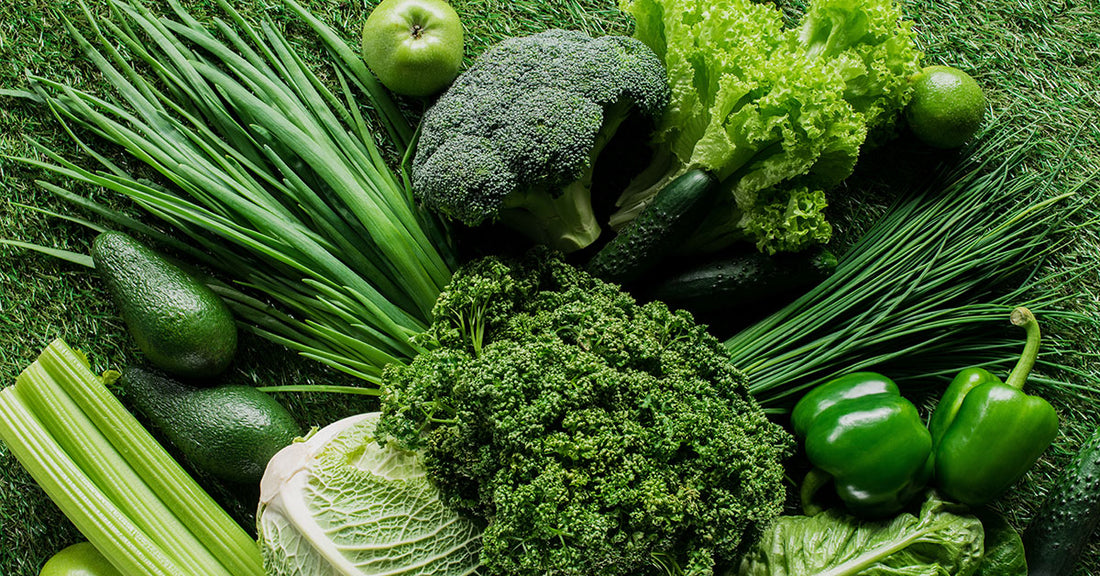Anyone looking to eat healthier or stay in shape for longer needs to utilize the nutrients found within vegetables. Generally, vegetables are the most nutrient-rich foods, with a high amount of fiber, vitamins, and minerals. In addition, vegetables are low in sugar, sodium, and fat, as well as being naturally hydrating and chock full of antioxidants which can help battle foreign invaders and heal cell damage. There are numerous reasons to eat and enjoy vegetables; here’s everything you need to know to effectively improve your diet using vegetables of all sorts.
How to You Define a “Serving?”
Unbeknownst to many, there is no standard for a “serving” of vegetables. Different countries have their own standards and serving sizes are altered depending on the preparation of the veggies and measurements. In the United Sates, for example, a half cup of raw vegetables, cooked vegetables, or vegetable juice is one serving. However, this figure increases to a cup when dealing with raw leafy vegetables. In the United Kingdom, all serving sizes are 2.9 ounces, or eighty grams. It’s also worth noting that many governments around the world do not recognize potatoes in your daily vegetable count, due to their high starch content. Diet-wise, potatoes are usually placed in the category of pasta or rice.
Can Vegetables Prevent Heart Disease?
There’s consistent, firm research validating the heart boosting functions of vegetables. According to one study, people who consume a higher than average amount of vegetables are 70% less likely to develop heart disease (1). Researchers are torn on why vegetables lead to greater heart health; some believe the increased in intake of fiber helps the heart beat at a healthier rate, while others believe the antioxidants are more likely to increase heart function. Either way, the benefits to your heart are clearly evident throughout a multitude of studies. A meta review of twenty-three studies, for example, observed a significant link between eating fourteen ounces of vegetables per day and an 18% decrease in the chances of developing heart disease (2).
Vegetables are Great for Losing Weight
Vegetables are a key component of many diets. This is because they possess a low caloric density, meaning they have few calories for the amount of space they take up in the stomach. This leaves you feeling full without consuming an excess of energy which you’ll need to burn off later. Vegetables’ high fiber, especially viscous fiber, also helps you feel fuller longer. By relieving hunger and adding the perception of satisfaction for a longer period of time, vegetables can greatly aid anyone in their quest to lose weight and maintain that loss. According to one study, dark or yellow fruits and vegetables are both best to eat when prioritizing weight loss.
Can Vegetables Improve Blood Sugar?
Diets which consume a higher than average amount of vegetables have been linked to lower risk of type 2 diabetes. This healthy benefit is again linked to vegetables’ high fiber content, as fiber is generally believed to reduce blood sugar levels and improve insulin sensitivity. The antioxidants and other beneficial compounds found in veggies are also important because they reduce “oxidative stress,” which in turn reduces the risk of sugar improperly entering your cells.
There are many massive scientific reviews which have verified vegetables’ in reducing blood sugar, including one which showed that an extra 3.8 ounces of vegetables eaten per day could reduce risk of type 2 diabetes by 2% to 14% (3). The most important vegetables for fighting type 2 diabetes are yellow vegetables and leafy greens, which were found to reduce risk by 18% and 28%, respectively (3). In addition to type 2 diabetes, a healthy intake of vegetables has also been linked to the reduced chances of certain cancers, such as lung cancer.
How Should Vegetables Be Prepared?
Vegetables can be eaten in many different ways, using many different methods. This variety in cooking and consumption styles has invited debate about the healthiest way to eat vegetables. Studies have shown that fresh, raw vegetables are the healthiest choices, but even these start to lose nutrients quickly after harvest. Frozen vegetables are less healthy than their fresh counterparts, as they’re usually harvested at the peak of ripeness and blanched, a boiling process just before freezing. Fresh vegetables, on the other hand, are picked before ripeness to avoid spoiling during transportation, meaning they’re usually at their peak of freshness when in the supermarket.
The difference in nutrient levels between fresh and frozen vegetables is quite minute, but present nonetheless. Canned vegetables are less healthy than those frozen, as manufacturers add heat during the canning process which reduces nutrient levels. Canned vegetables also have added salt and sugar which can be counterproductive to a healthy lifestyle. Juicing vegetables is a popular process, but less nutritious, as juicing removes much of the vegetables’ fiber, which is crucial for many of the benefits listed above.
No matter how you enjoy your vegetables, or which vegetables you enjoy, you should certainly consider adding more vegetables to your diet. The health benefits of vegetables are numerous and there’s never a downside to eating healthier foods. To live a longer and more energized life, choose vegetables the next time you’re shopping for dinner.
References & Disclaimers
(1) https://www.ncbi.nlm.nih.gov/pmc/articles/PMC5837313/
(2) https://www.medicalnewstoday.com/articles/just-a-cup-of-nitrate-rich-vegetables-daily-promotes-heart-health
(3) https://www.safetyandhealthmagazine.com/articles/20073-eating-more-fruits-vegetables-and-grains-may-reduce-risk-of-type-2-diabetes
✝✝This noted statement is based on independent research and is not necessarily the opinion of the author
